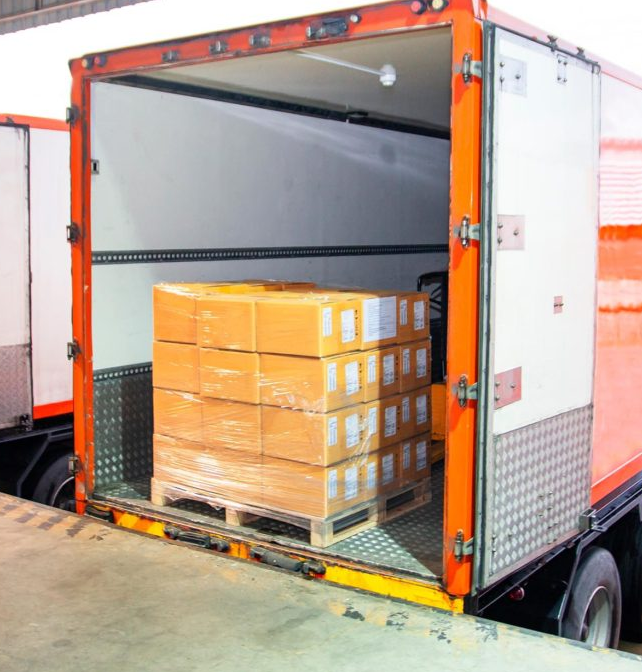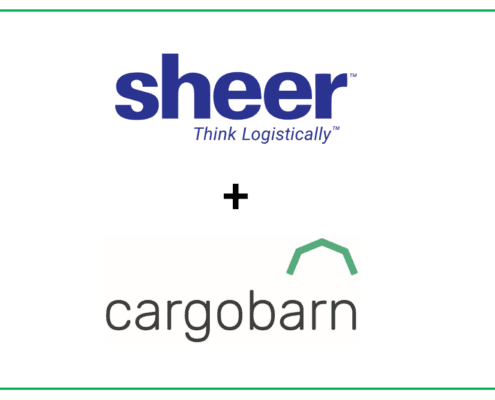
Freight prepaid and collect are two common payment term options for freight shipping. To know when to use which approach, you must first understand what freight collect means and what freight prepaid means. Whether you are working with a 3PL, freight forwarder, or arranging for your shipments directly with the carrier, knowing the difference between freight prepaid and collect can help you save money and ensure your shipments arrive on time.
In this blog post, we’ll explore what freight collect and prepaid freight mean and when to use each option. Read on to learn more!
What Is Freight Collect?
Freight collect is a freight payment method in which the receiver of the shipment pays for all freight costs directly to the carrier. This means the sender of the shipment does not need to pay for shipping upfront. Instead, they send it on a freight collect basis and pay upon delivery. It’s important to note that freight collect does not mean free shipping—the receiver must still be prepared to pay for all associated shipping charges.
How It Works
When shipping with freight collect, the sender must enter “freight collect” or “FOB origin freight collect” as the payment option when booking their shipment. This ensures that all delivery fees and other shipping costs are billed directly to the receiver of the package by the carrier delivering it.
These fees include transportation costs, fuel surcharges, and applicable taxes or customs duties. The sender is then responsible for these costs when the carrier invoices them. Freight collect is commonly used in international shipments, as it can help to simplify the process of collecting payment from the receiver.
Pros and Cons of Freight Collect
Pros:
- Cost control: Freight collect gives the recipient more control over the shipping costs, as they only pay for the freight charges upon receipt of the goods. If the recipient has negotiated favorable rates with carriers or wants to use their own preferred shipping provider, they may see offering freight collect as an attractive benefit.
- Cash flow: For the shipper, using freight collect can improve cash flow since they don’t have to pay for shipping costs upfront. Instead, they can invoice the recipient for the freight charges separately.
- Flexibility: Freight collect allows the recipient to choose the shipping method and carrier, which can be advantageous if they have specific preferences or unique requirements for shipping.
Cons:
- Risk of non-payment: The recipient may refuse to pay the freight charges upon delivery, leading to disputes and potential legal action. This risk is higher when dealing with unknown or unreliable customers.
- Administrative burden: Managing freight collect shipments can involve additional administrative tasks for both the shipper and the recipient, such as tracking freight charges, issuing separate invoices, and reconciling payments. This can increase workload and complexity, especially for businesses with high shipping volumes.
- Limited shipping options: Using freight collect may limit the available shipping options compared to prepaid shipping, potentially leading to longer delivery times or higher costs for expedited shipping.
- Negative impact on cash flow: Since payment for freight charges is collected upon delivery, there is a risk of delays in receiving payment, which can impact the shipper’s cash flow and overall business operations.
What Is Freight Prepaid?
Freight prepaid is a transportation contract that requires the shipper to pay for the freight charges upfront. This gives the shipper more control over the shipping process, as they will know exactly how much they will be paying for their shipment before it leaves their facility.
How It Works
When using freight prepaid, the shipper must provide a Bill of Lading (BOL) to the carrier before they can ship out their goods. A BOL is a legal document that details the shipment information, such as its destination, contents, weight, and other pertinent information. Once payment has been made upfront and all documents have been completed, the carrier can take possession of the goods and start transporting them to their destination. Please note that a freight bill is not the same as a BOL. Freight bills are essentially your “invoice,” representing the charges and fees associated with a shipment.
Pros and Cons of Freight Prepaid
Pros:
- Simplicity: Freight prepaid simplifies the shipping process for both the shipper and the recipient. Since the shipper pays for the freight charges upfront, there’s no need for the recipient to handle any payment related to shipping, making transactions smoother and more straightforward.
- Risk mitigation: With freight prepaid, the shipper doesn’t rely on the recipient to pay for the shipping charges upon delivery, mitigating the risk of non-payment or disputes over freight charges.
- Improved customer service: Offering freight prepaid shipping can be a customer service advantage, as it provides convenience to the recipient by eliminating the need to handle shipping payments.
- Flexible shipping options: Since the shipper is responsible for arranging and paying for shipping upfront, they have more control over the shipping method, carrier, and service level. This allows them to choose the most suitable options based on factors such as cost, speed, and reliability.
Cons:
- Higher upfront costs: One of the main drawbacks of freight prepaid is that the shipper bears the full cost of shipping upfront, which can strain cash flow, especially for businesses with tight budgets or large shipping volumes.
- Limited control: With freight prepaid, the recipient may have limited control over the shipping process, including the choice of carrier and shipping method.
- Risk of disputes: While freight prepaid reduces the risk of non-payment, there’s still the potential for disputes over shipping charges, especially if the actual freight costs exceed the prepaid amount.
- Complexity of international shipments: Freight prepaid shipping can be more complex for international shipments due to factors such as customs duties, taxes, and regulatory requirements.
Other Important Freight Terms to Understand
Free on board, or FOB, specifies whether the buyer or seller is responsible for the transportation of goods, and defines the point at which the risk of loss or damage to a shipment transfers from the seller to the buyer. FOB terms can be used in conjunction with freight collect and freight prepaid arrangements.
With FOB Origin, the buyer takes responsibility for the goods, including shipping costs, as soon as the goods are shipped. The buyer typically arranges to pay for the freight on a prepaid basis. FOB origin can be combined with freight collect. In this instance, the shipper is responsible for arranging and shipping the goods, while the buyer is responsible for paying the freight charges upon delivery.
With FOB Destination, the seller is responsible for the goods and shipping costs until the shipment reaches the buyer’s destination. The seller typically pays for the shipment on a freight prepaid basis. Understanding the differences between these various shipping terms is critical to the success of your business.
Making the Right Choice for Your Business
When deciding between freight collect and prepaid, it’s important to consider the type of shipment you’re sending, where it’s going, and the cost associated with each option. Generally speaking, if you’re shipping goods from one location to another within the same country, then you can use either option.
If you’re shipping goods internationally or require special services such as insurance or additional handling fees, then paying for your shipment upfront may be a preferable option. In addition, this method works if you know what your shipment will cost. Freight collect is the better choice if you’re unsure of how much a shipment will cost or if there will be ancillary fees.
Understanding How Shipment Size Affects Your Decision
Although it’s important to consider both freight prepaid and freight collect when shipping goods internationally, the size of your shipment may indicate the best option for your current situation.
Smaller Shipments
For smaller shipments (under 500 kg) or those going a long distance, freight collect tends to be cheaper due to lower handling fees and reduced insurance premiums associated with smaller packages.
Larger Shipments
Freight prepaid tends to make more sense for larger shipments (over 500 kg), full truckload shipments, or those going short distances. This is because it eliminates any risk associated with an increase in transit costs due to unforeseen events, such as bad weather or mechanical breakdowns.
When deciding between freight prepaid vs. collect for an international shipment, several factors need to be considered, such as the size, distance, or frequency of shipments. You must also know your destination country’s regulations, tariffs, and taxes. All of these affect the total cost of shipping, so it’s important to weigh them before making a decision. Each scenario presents different challenges requiring detailed analysis for logistics companies to maximize their savings while ensuring timely delivery.
Maximizing Cost Effectiveness With Data and Technology
Knowing which type of shipping payment method to use for your supply chain needs can be challenging—many variables and moving parts can significantly impact your bottom line. Fortunately, this process can be made easier by leveraging the power of transportation management software (TMS). These high-powered systems centralize all of the information relating to your shipping and logistics operations, from current shipping rates to carrier performance. This information provides you with crucial insight and visibility and allows you to make the best decision for every shipment.
For example, if you can predict the costs of a shipment accurately and are transporting goods a short distance, you might use freight prepaid. However, if significant weather events make it difficult to forecast costs or delivery times, you may choose an alternative route and opt for freight collect.
Start Thinking Logistically With Sheer
At Sheer Logistics, we know how difficult it can be to navigate the world of freight management. As your logistics partner, we strive to simplify the process and give you the tools to deliver goods effectively at the best rate possible. Whether you’re looking to integrate a powerful TMS, ship internationally, or optimize your logistics processes, we can help. Get in touch today to find out how you can ship with confidence.
Whether you need full logistics management, carrier sourcing, or help with any part of the logistics process, Sheer Logistics delivers industry experts and cutting-edge technology that deliver bottom-line results.







